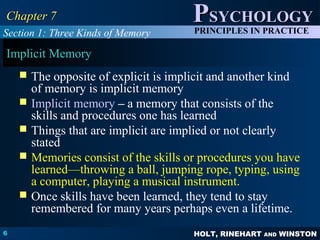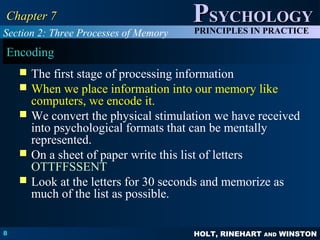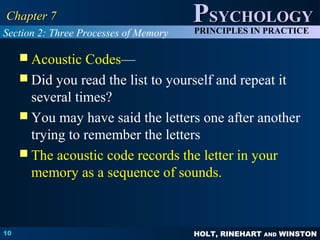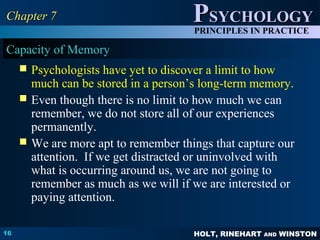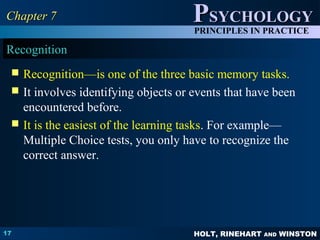The document discusses memory and is divided into sections on the three kinds of memory (episodic, semantic, implicit), the three processes of memory (encoding, storage, retrieval), and strategies for improving memory like repetition and chunking information. It provides examples and explanations of these memory concepts.





